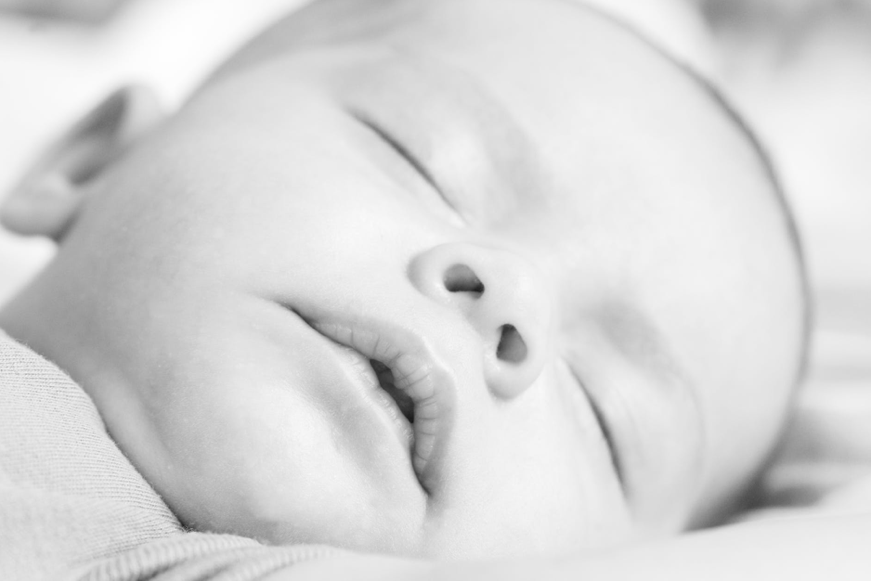It is an impossible task to shield your children from stress. But, according to recent discoveries in the world of epigenetics, you may be able to prepare your child, starting from birth, to process and handle stress in a healthy way while keeping anxiety at a minimum.
Human babies are by far the most biologically dependent infants of any animal species, relying on their mothers or other caregivers for all their needs. Compared to most other mammals that are born with 60-90% of their adult brain size, humans almost seem to be born premature with just about 25% of their adult brain size.
Therefore, parental care is, and should be, particularly prioritized early on in a child’s life. Whether that looks like feeding, comforting, carrying, or simple skin-to-skin contact, these actions ultimately help babies grow. Human infants gain major benefits from being held by their mothers, as their central nervous systems depend on having a microenvironment that is similar to the maternal uterine environment from which they came. The closest thing a baby can experience to that environment is the heat, sound, movement, touch, and access to nutrients from the mother’s body.
Biologically, babies aren’t meant to be separated from their mothers, and when they are, serious consequences may occur. The fact that an infant has twice the chance of dying if placed alone in a room to sleep (1) ought to be a huge insight into what human infants need the most in addition to breastmilk. Early experiences and deprivation of maternal care and contact can even change an infant’s DNA, ultimately affecting his or her long-term psychological resilience and responses to stress.
How It Works
Changes in the DNA occur through the process of methylation. Carbon and hydrogen molecules are added to the genes, essentially turning them on and off, and permanently affecting the infant’s behavior and physiology. These changes, imprinted in the DNA, can be passed on for generations and generations.
Years ago, an experiment conducted on rats (2) by Dr. Michael Meaney illustrated the effects that DNA methylation can have on offspring. The experiment showed that rat babies who had been highly cared for in the form of licking, grooming, and breastfeeding, experienced less anxiety and fear when confronting stressful situations, due to fewer alterations to their genes. Recently, Dr. Barry M. Lester (Professor of Psychiatry & Human Behavior and Pediatrics at Brown University), and his research team, theorized that a version of this experiment conducted on human infants would yield similar results.
During Dr. Lester’s experiment, using a common stress test called the “still-face” procedure, mothers spent two minutes happily engaging with their infants, before suddenly stopping—showing no expression or positive emotion. The infants would then work hard trying to get the mothers to resume their happy engagements. When they did not succeed, babies became deregulated and showed obvious signs of distress like looking away, twitching, drooling or hiccupping, or stretching out.
Two groups of infants were tested: “high-contact” babies who were routinely breastfed and experienced frequent holding, carrying, and skin-to-skin contact, and formula-fed, “low-contact” babies, who did not receive the same amount of close contact and care. Taking a swab of saliva from the inside of the infants’ cheeks before, during, and after the experiment allowed the scientists to keep track of all changes and differences in each child’s DNA.
The babies that were breastfed, the “high-contact” babies, mirrored the response of the rats that were more cared for, meaning they showed a less anxious reaction when confronted with its mother’s “still face.” The maternal nurturing behaviors had a specific effect on the infants’ genes, protecting them from alterations. Formula-fed, low-contact infants, on the other hand, had more alterations in the relevant genes, and therefore displayed more distress to the still-face test. The DNA analysis showed an additional string of carbon molecules in the formula-fed infants, due to the methylation process. These same molecules were not changed in the DNA of the babies that were breastfed.
The conclusion at the end of the experiment showed that maternal care variations could alter the genome of the infant specifically the degree to which they react to stress. Put another way, depending on the quality and kind of care both human and nonhuman mammals receive as infants, genetically-based changes can occur affecting their temperament and/or mood and behavior. Remarkably, these genes might well be passed on to future generations, meaning the interactions experienced as an infant may follow a person not only through their own life but through to the lives of their children and succeeding generations.
While there is still much to be learned in this relatively new and expanding field of epigenetics, this and other similar experiments are beginning to show that there is a serious, foundational need for sustained infant contact with a caregiver, potentially leading to life-long consequences on genetic expressions that affect a person’s future health and well being.
The problem with these findings is that it can be difficult for busy human parents to provide the vital, high-contact care that their infants require. The obvious ideal is to breastfeed regularly for at least six months (the World Health Organization’s recommended length of time), and to spend as much time as you can spare cuddling, holding, carrying, and playing with your infant or child. Of course, every family is unique, with different needs and circumstances, so it may require some creativity to fit these interactions into your schedule. Many parents, especially breastfeeding mothers, turn to cosleeping—which includes having their infant sleep in a crib, bassinet, or cosleeping device in their bedroom, or bedsharing with careful safety precautions (4)—to promote close contact throughout the night.
Regardless of how you choose to curate closeness with your child, it can help them retain the generation-spanning benefits of fewer alterations to their DNA, leading to less anxiety and fear in the face of stress.


